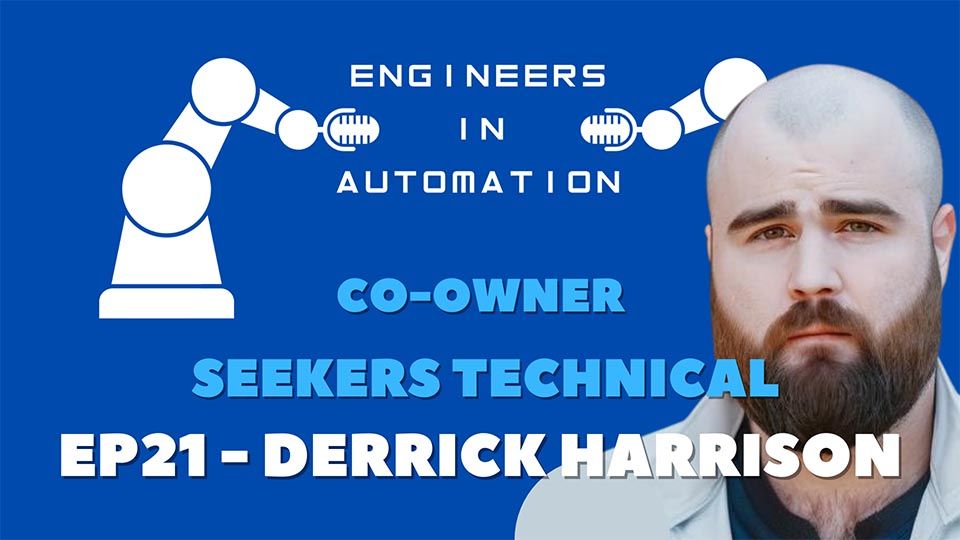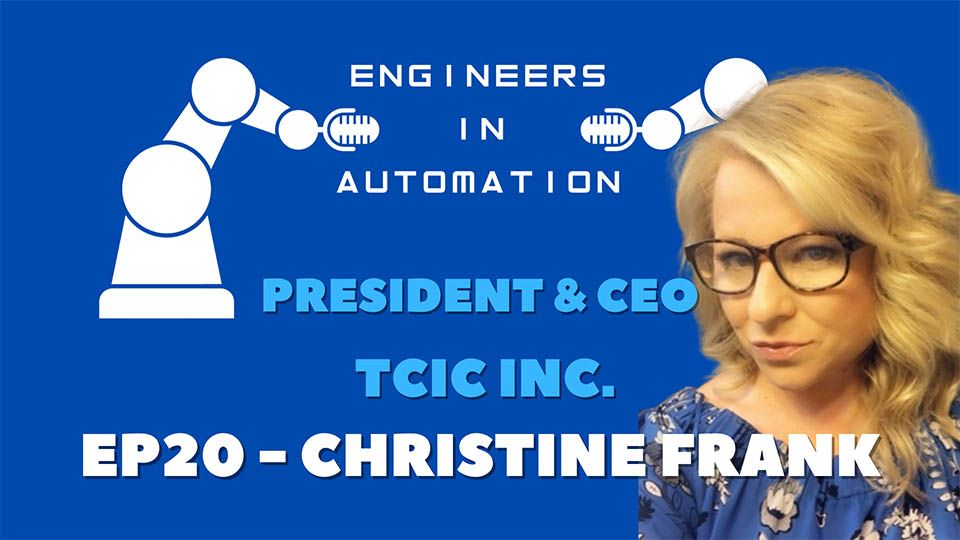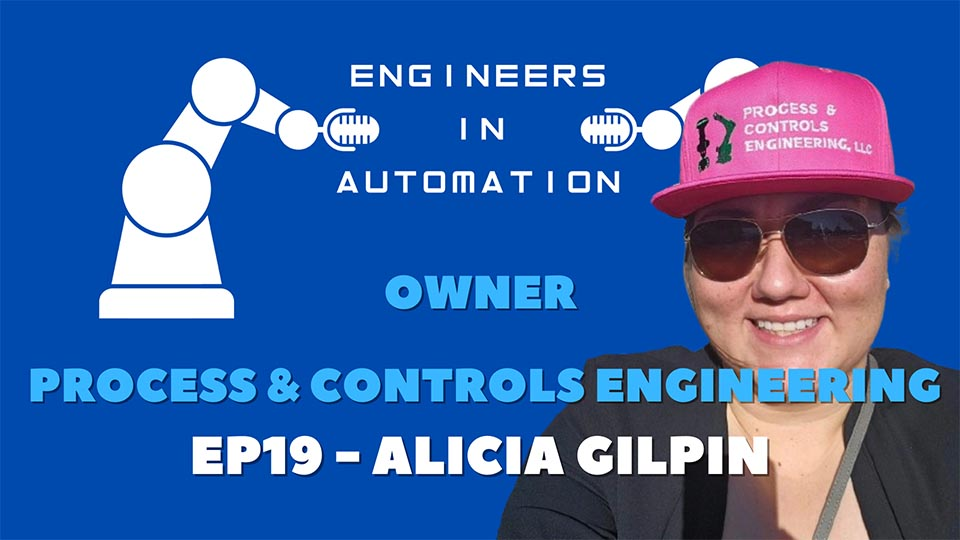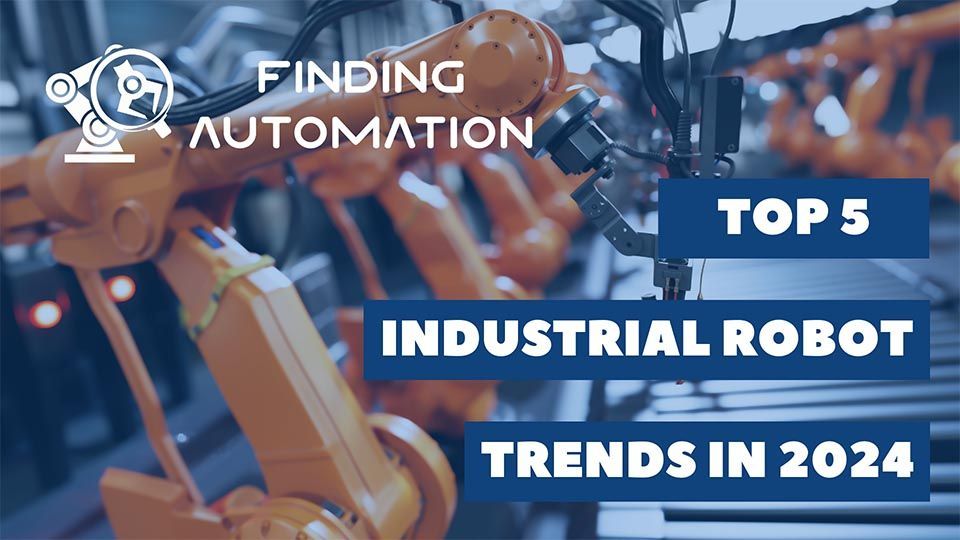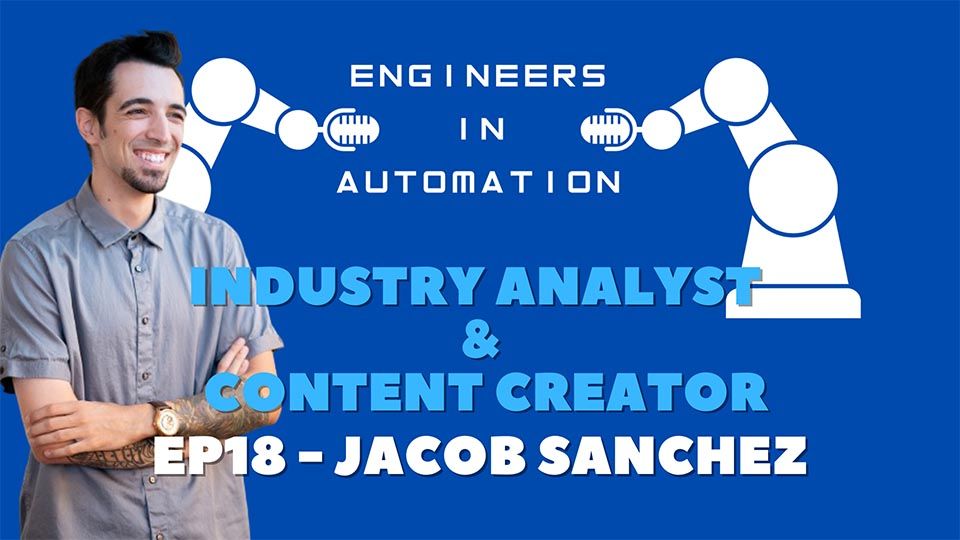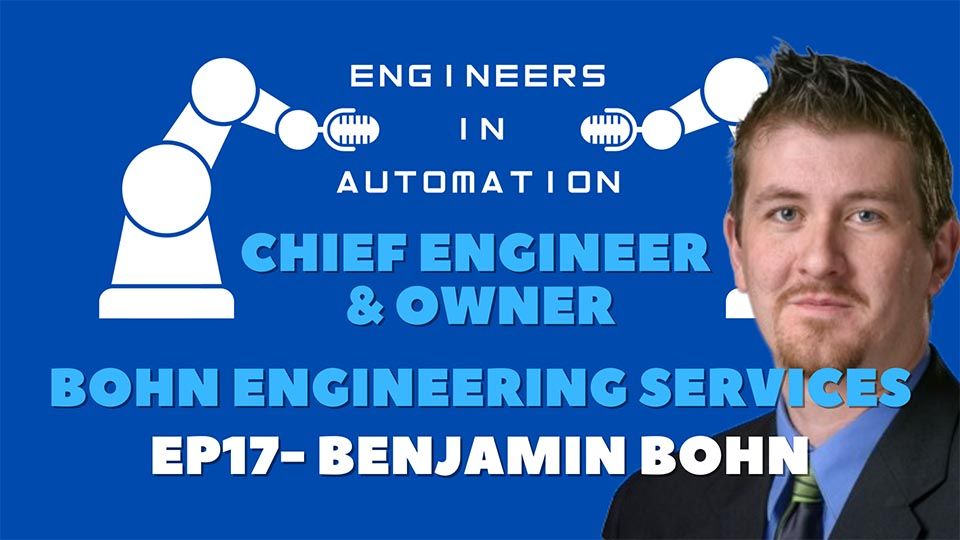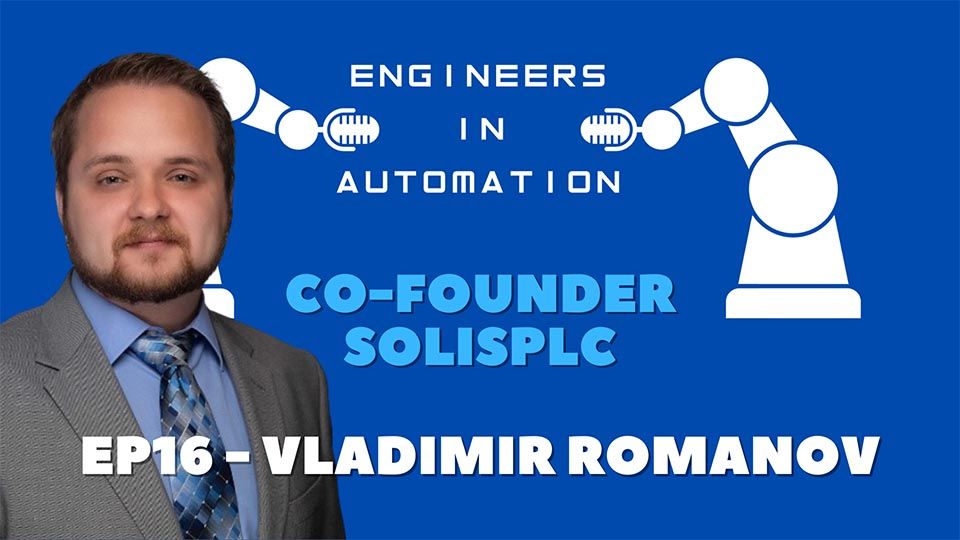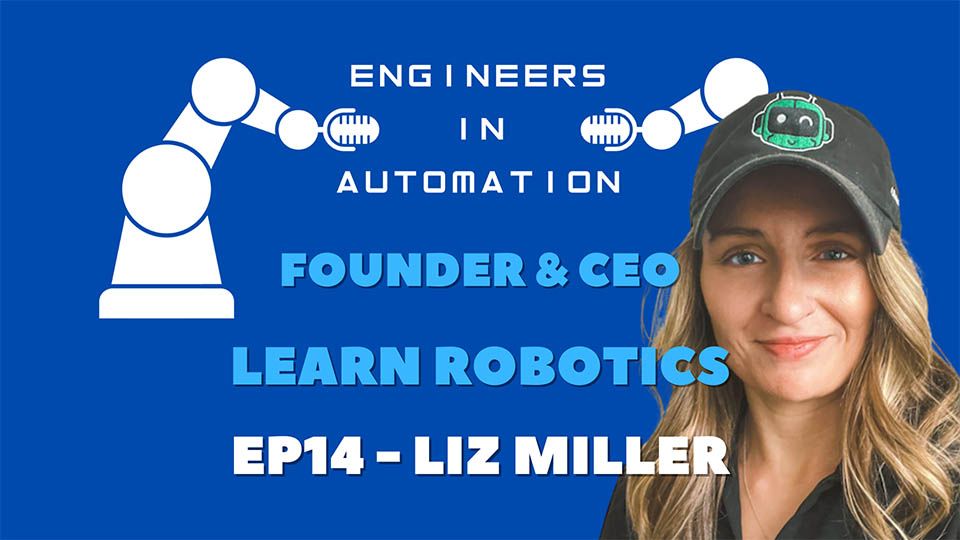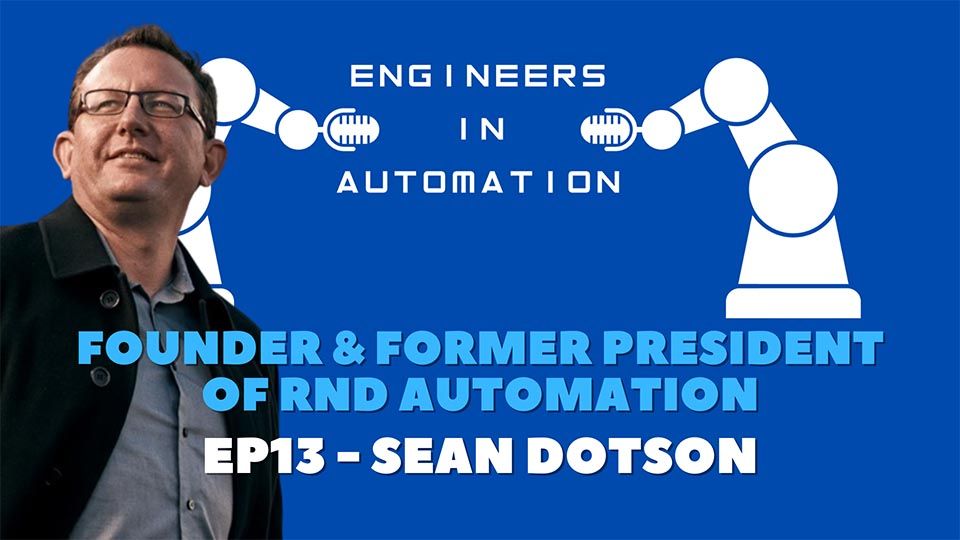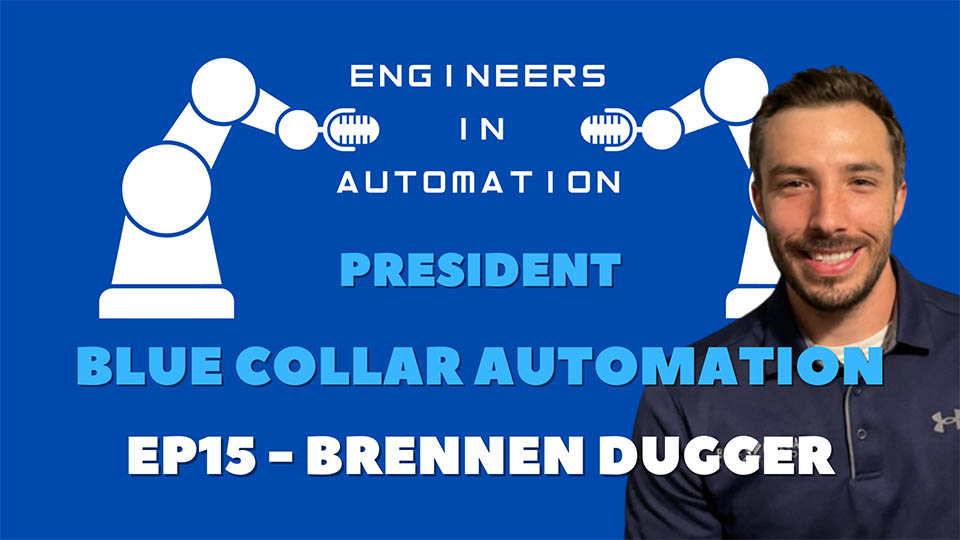Keegan Dillon – Host (KD): Hi, my name is Keegan, I'm the founder of JOINER Services, and this is
Engineers in Automation. On today’s episode, I’m going to talk with Mark Cainciosa, a sales engineer from Acieta. We're going to talk about his history in the automation industry and the projects that he's been working on with his company. Now let's go talk automation.
KD: Welcome to episode 5. I’m here with Mark Cainciosa from
Acieta, a sales engineer. Mark, welcome to the show. Could you tell us a little bit about yourself?
Mark Cainciosa – Guest (MC): Wow, thanks for having me. Yeah, so I’m a sales engineer for Acieta. I’ve been involved in robots and factory automation probably longer than there's been rocks on the earth, so it's been a long time, over 25 years. I live in Charlotte, North Carolina, and I cover a territory right now that exists, it's what we refer to as the southeast. It goes from Texas and Oklahoma over to North Carolina and Florida and everything in between.
KD: Okay, wonderful, and then how did you get your start in the automation industry? I know we've briefly talked about it, but tell everybody where you got started.
MC: I was working for a division that was associated with
General Motors
way back when, and we were setting up test stands for air conditioning compressors. And a lot of these guys would come in that were sales guys, and we would ask questions, you know, “What does it do? How does the software work? How do we set it up?” and the salespeople didn't know anything, and I was like, “Well wait a minute, I understand all this stuff, why don't I sell?”
I really enjoyed being able to go and meet people and see new applications, so I left that company and I got started with a company called New England Affiliated Technologies way back when and we made XYZ dispensing systems. They were little automated dispensing systems. Did a lot of switches and things like that.
KD: Oh, cool, interesting, and then with your company now at Acieta, what robots are you working with? What types of automation? Tell us a little bit more about that.
MC: Yeah, so we are exclusively a Fanuc robot integrator. The applications you know that we work with at Acieta I like to refer to we are the dirty side of robotics. We do a lot of applications that are load/unload type applications for machine tool and applications for EDM machines. We do a lot of welding applications and a lot of press brake applications, where the robot is working the metal through the press brake and through the bends. And we do a lot of metal removal type applications and then some marking applications. So, it's all, for the most part dealing with metal components with us. We also do a little palletizing, but that's a smaller part of our strengths.
KD: Okay, and then what makes your guys’ business a little bit different than, say, your competitors?
MC: Yeah, I think, you know, one of the things that makes Acieta really unique is we have these verticals. You know that I just kind of talked about, and we stick to those verticals very strongly, so when someone comes to us and says, “Hey, can you do an assembly for small parts or little?” No, we can't, that's not our thing, and so I think one of our strengths and one of the things that's really unique in the industry because I think there's a lot of companies out there that will do anything. Oh, it's a robot. Yeah, we can do it.
And at Acieta, I think we really stick to those verticals, and we utilize our strengths and our experience to develop great solutions for our customers. So that and also, we've taken those verticals, and we've got standard systems in those verticals. So, we've got a lot of standard weld packages. We've got standard load-unload applications using cobots from Fanuc. We've got standard palletizing applications, and so those systems are already pre-developed and close to typically four-week delivery. So, I think those are two things that make us really unique.
KD: Well that that lead time right there, you just jumped out to me, and that's unique. Many companies are seeing 20 plus now, 36 plus, week time, so that's pretty interesting. what are some projects that you guys are working on right now?
MC: So, one of the projects we just got an order for about a week ago was dealing with mower deck components. So, the mower deck components are, give or take, about 60 inches wide, maybe 30 inches deep. They weigh about 150 pounds, and we're taking them using a robot and working them through a press brake. So, the mower deck component has four different bends on it, three on one side, one on the other. So, the robot is handling this part from a pallet. It puts it in an alignment stage, realigns the part, grabs it, and then walks it through the press brake.
Some of the things that make press brake automation unique are the software that we use now. So, you can take the model of the part, put it into the software, and you can generate the robot program. The press brake program and the tooling setup that'll go inside of the press break. You can also go further and have automatic tool changing on, it so I think that's a really unique application for us, and we can work with multiple press brake manufacturers. So, that sets us apart, I think, in a lot of ways.
KD: Yeah, interesting. I guess one of the questions I always love asking people is, what do you like about this automation industry? You've been in it now for almost 30 years, so there's got to be a reason you're sticking around and staying in it. What do you really enjoy about the job?
MC: You know, I think it goes back to where I came from. So, I'm from Buffalo, New York, originally. Go Bills! Sorry, and when I grew up in Buffalo, manufacturing was collapsing in the town. So, the town was an old industrial town, and you know we had a lot of manufacturing; General Motors,
Ford, Wiper Blades, and
Bethlehem Steel, and just massive organizations, and they all disappeared. Now you know, growing up, we always saw that those companies didn't invest in themselves, so when I look at what I do now. I'm running around trying to talk to and trying to help manufacturing companies to show them how to invest in themselves, how to manufacture products better, quicker, faster, at lower cost, and how to grow their business.
So, a lot of my inspiration, I think, comes from where I started, you know, watching Buffalo collapse because no one invested in manufacturing. To where I go out now, and I get to, you know, help companies make a difference. And I think the other thing is, you know, I get to see different applications every day. So today, I’ll see an application where the company is building houses using robotics. You know, I talked earlier about mower deck parts, and last week I was talking about transmission components for a diesel truck engine, and then before that, I was talking about beer and palletizing. So, I get this wide variety of applications I get to talk about and companies that I get to visit. So, I really enjoy that aspect of the job as well, but mostly it's just helping companies make a difference.
KD: All right, what about some of the, you know, you talk about some of the mistakes that you've heard growing up in Buffalo about not reinvesting in organizations? What are some of the mistakes that you've made that you've seen throughout your career?
MC: I think one of the things. One of the big mistakes I made, somewhere in the middle, was thinking you know, I'm a sales guy. I know what I'm doing. I don't need to keep learning, and I think, you know, a lot of what happened during covid. I really had to step back and go, wait a minute, the way I sold. Which I was just a visitor. I would show up. I would visit. I'd show up again. I would visit. I'd show up again, and each time I'd gather data and figure out you know what the customer's needs were. And when covid hit, you know, we all realized, okay, you're not showing up. It's not that … you just can't anymore, so I had to really work on, I think, my skill set and try to learn how to be a better salesperson. And how to be a better consultant for my customers and so I think the mistake I made was sitting back and going, “ I don't need to learn anymore.” So now I’m in a place, I think, where, well, this morning, I probably spent 45 minutes listening to a book on tape. That's very typical of me during the morning and when I’m driving in the car. When I’m flying in the airport. I’m constantly trying to listen and learn from the books that I’m listening to. So, I think that's probably my biggest mistake.
I think the other one was I stopped networking for a period of time. Networking, to me, is making a huge difference in what I do, and I’m helping others to connect with companies and people that can help them. So, I’ve really emphasized networking the last, say, five to seven years as well.
KD: Yeah, that's great. That does really flow into one of my next questions. I always like asking, where do you go to learn? So, you obviously listen to a lot of books, and probably listen to a lot of different podcasts. Is there one that you recommend for people, whether it's business-related or automation related, that they should listen to?
MC: So, from a sales perspective, it's probably a guy by the name of Keenan he wrote a book called “
Gap Selling.” From an automation perspective,
Manufacturing Happy Hour
with Chris Luecke. I listen to him and Jake Hall, The Manufacturing Millennial. Those are two guys that I follow, and I listen to their podcasts and watch a lot of their video. And then I know it's weird, but I read a lot of books about submarines. I don't know why, but so that's just another issue. And then you know again I’m kind of a sports fan, so I listen a lot of Buffalo Bills stuff, sorry.
KD: Yeah well, they were good when I was growing up as a kid. Never quite climbed the hill all the way, but they were there.
MC: Hopefully this year!
KD: There you go. I guess what may be some of the issues that you see within this industry. You know, being a sales engineer and seeing all these different unique applications. What are some of, you know, issues that you may be seeing throughout your travels?
MC: So, I think one of the issues that I guess I see that maybe is a concern is the cobot phenomenon, right? So, a lot of I mean, there's so many of them out there. We were at, you know,
Automate
a couple of months back, and there were probably 30 different cobot companies I’ve never even heard of. The cobots they have a great place in the industry, and I think what
UR
did for the industry is really it's phenomenal. They started a portion of the industry that didn't exist, but what concerns me a little is the way people look at a cobot and think it's safe because it's a cobot. Then, you know, we sell a cobot system that is a cobot for welding. Well, that's not a safe cobot. It's great for the programming, but I think one of the things that, I guess, I’m concerned about is when people see cobots, they think automatically safe, and I think that we as an industry need to make sure that our customers understand that. Yeah, it's a cobot, but the reason it's in this application, for example, the welding application, is the ease of setup and the ease of programming. It’s not because it's inherently safe. So that's one of the, I guess, a concern in the industry.
Then you know we have our hands on some amazing technology. When you look at what you know
Boston Dynamics
is doing, for example. We are advancing technology, and AI, and the ability to do things that we've only watched in movies. And I think we as an industry need to remember that we have a society to take care of as well as being able to manufacture something. I think the quote you know that always comes back to me in our industry is, “just because you can, doesn't mean you should.” Right, so I think we as an industry need to check ourselves always and say, “Okay, yeah, we can do this, but should we, just because we can?” So, I don't know if that makes sense but go watch a fun movie and say, “hmm, I wonder if we could do that now?”
KD: Yeah, well, I love talking a little bit about cobots, so what are some applications, you know, you touched on welding that you guys are using, that you're seeing that they work phenomenally at? I know you talked about the different brands and all that and how it may be getting a little clustered in that space, but what are some applications that you really see? Because I do see definitely, benefits and bonuses in welding in, you know, small pick and place operations. There are tons of opportunities. Is there anything that sticks out in your mind?
MC: Yeah, we do a lot in load/unload applications for machine tool and for lathe applications. We just sent a system out to a customer in Oklahoma recently, and that system, I don't know, give or take, is around $120,000 put it next to a lathe, and you're able to set it up. It's got a pegboard on the system and so the cobot will go to the pegboard, pick the part up, put it into the lathe, switch it. It's got usually a dual gripper on the end of arm tooling. So, an application like that is great for a cobot because it's simple. You can put it next to a machine. An operator can walk up next to the machine. They can replace parts on the pegboard and get it ready for the next round. They can stand next to it and so it makes sense in an application like that. So, we see a ton in applications like that. We see a lot in palletizing as well. So now you've got an end of arm or an end of line, where the cobot is able to pick up, you know, boxes from maybe two conveyors and palletize them next to it. And again, operators can be close by. You don't have to have everything fenced in. There aren't safety concerns, so those are great applications. I think there are a lot of assembly applications as well, although assembly sometimes it gets to be where the cobots are not fast enough at times.
I know there was an application I was looking at yesterday. A cobot could never do it. It's 300 parts a minute. It's not going to happen with a cobot, but there are so many others that are small applications, and then I think they're the ones we're not thinking about. Well, I'm not thinking about. Someone is. someone scratching their head today going, “you know, besides flipping a burger, I can do something else with it in a restaurant,” or “I can do something else with it in a hotel.” We've seen a cobot that will clean a bathroom, and I've got to imagine that when you start talking about bathrooms, public bathrooms, and restrooms. The idea of sending a cobot in to do that work has got to be a great idea.
KD: I'm waiting for the one that will fold my laundry for me, and then I’m all in.
MC: I'm sure that one's out there. I think I've seen a robot that will fold shirts so that it may be there. It might not show up next to your dryer, but it'll work.
KD: Yeah, the next five to ten years, fingers crossed, right? Yeah good and then also I’d like to touch on it too. Do you have any good words of wisdom? I mean like, I said, you've been around for so long in this industry, do you have any inspiration for some of us younger guys that are you know just 10 years in now and getting our feet wet?
MC: Yeah, so you know, I think a football analogy is Tom Brady. The guy's 45 years old, and honestly, he's a threat to win the super bowl this year. And it's because of the way he takes care of himself. It's because of how much he spends, how much time he spends practicing and working out. Taking care of his body in ways that most of us just don't even consider. So, I think when we consider what he does for himself and the level that he's still able to perform. I think as people in the industry. People in the automation industry. We should be doing the same. So what are we doing to learn today? What are we doing to connect with other people today? Because even if we just learn from the computer and books, or audio, whatever it is. Not having that personal interaction, that's going to be, it's going to hold you back as well.
So, I think learning, and networking with other people. Honestly keeping yourself physically in shape as well. Makes it easier for you to be mentally prepared. And so I guess I look at what we do, and say, “you know what, emulate what Tom Brady or any great athlete does and hone your skills.” Practice your skills. Learn something new every day and continue to try and grow. And for me, I never want to be the old guy in the room. I never want someone like you to look at me and go, “oh, that's the old guy.” I want us all to be able to look at one another going, “man, that guy's bringing something to the table today. I never heard anyone think that way.” And so, I think that's the other thing that everybody in the room can bring something to the table. Whether it's the janitor or the CEO, they can bring something to the table that's going to matter and make a difference in other people's lives.
KD: Yeah, that's great. I think you touched on something really big there too. From physical health, that rolls into mental health. Keeping you fresh on the job and then also like you touched on learning as well. You just roll all three of those in and you're learning something new every day. And then the way you really get to hone in your skills and you're coming fresh, and you're enjoying your job. Really able to, you know, expand your knowledge within the industry. You know, especially coming in with a positive attitude. Yeah, that was great! Well, I guess let me ask you this where can people find you? How do they get in touch with you if they want to contact you?
MC: Yeah so, I’m easy to find obviously on LinkedIn you can find me. If you type in a hashtag for #MarkTheRobotman, I show up somewhere that way, and of course, they can always call me. You know my phone number is linked on my LinkedIn page. So yeah, just hit me. I’m here and if you go to the
Acieta
website you can find me through that Acieta website. Just call just say, “Hey, where's Mark? How can I talk to him?”
KD: Oh that's great, and I think that's actually how I found you, #MarkTheRobotMan. I think that's how I ended up connecting with you. Well, I hope everyone enjoyed today's episode. If you did give us a like, comment, share, and don't forget to subscribe, and we look forward to having you join us next time here on
Engineers in Automation. Thanks.
MC: Thanks a lot, have a good one.
